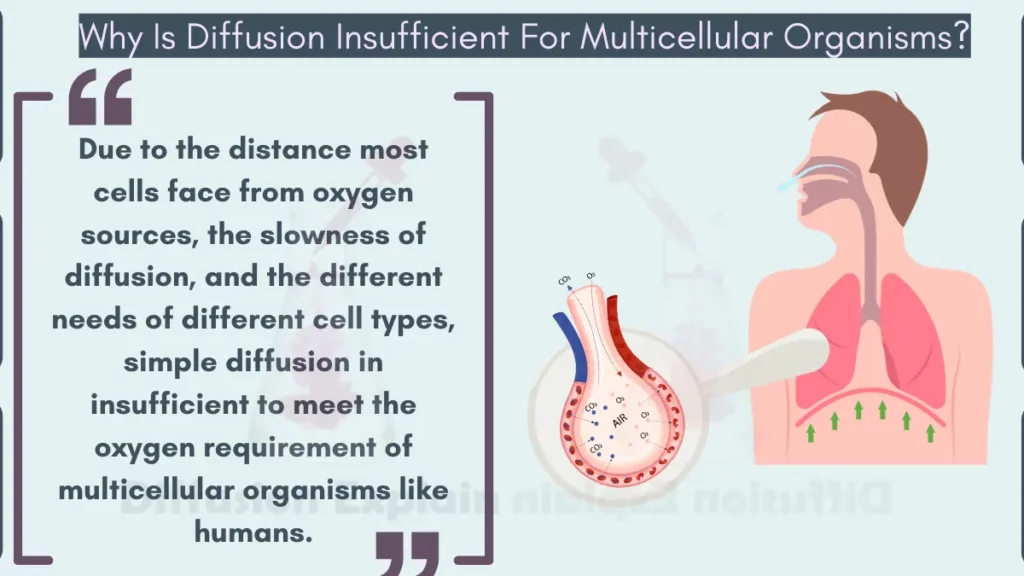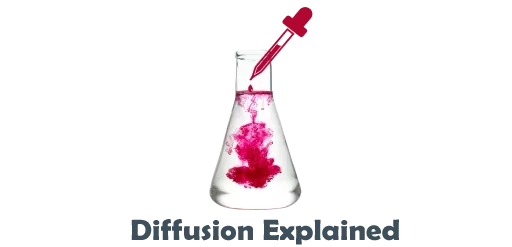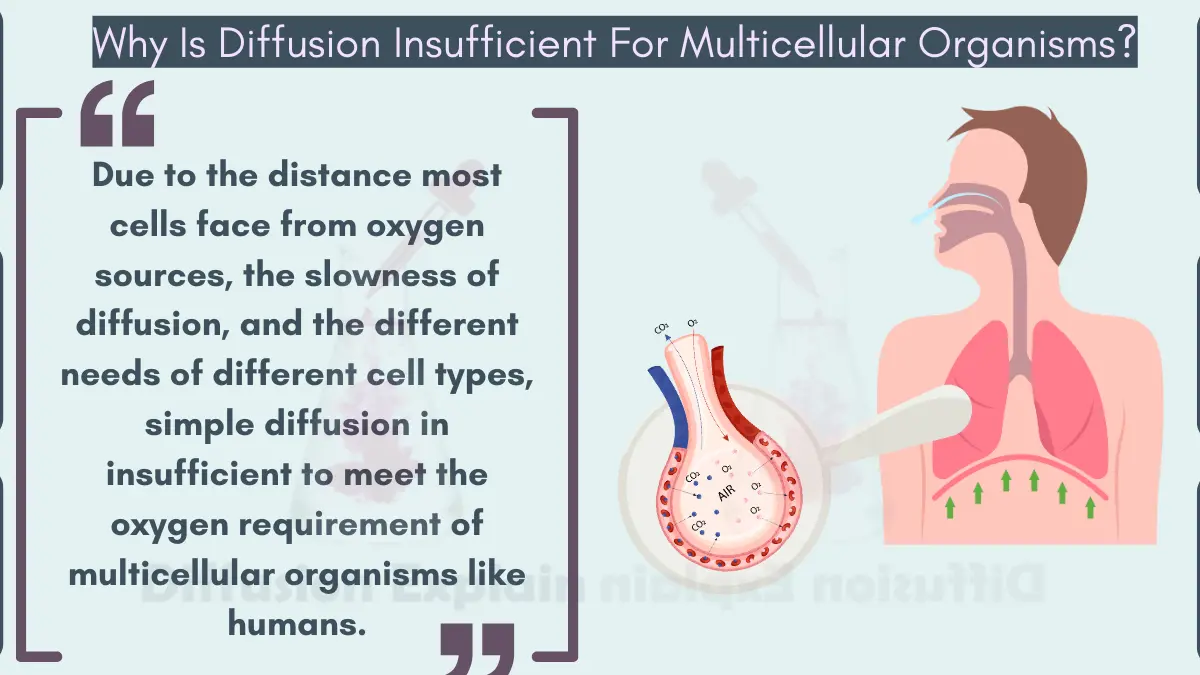Due to the distance most cells face from oxygen sources, the slowness of diffusion, and the different needs of different cell types, simple diffusion in insufficient to meet the oxygen requirement of multicellular organisms like humans.

But Diffusion is sufficient for unicellular organisms, Read Why?
Why Is Diffusion Insufficient For Multicellular Organisms like Humans?
There are three main reasons why diffusion is insufficient to meet the oxygen needs of multicellular organisms:
1: Distance
In multicellular organisms, most cells are not in direct contact with the external environment where oxygen is readily available. This means oxygen would have to travel long distances through layers of cells to reach all parts of the body. Diffusion is a slow process that depends on random particle movement. It wouldn’t be able to deliver oxygen fast enough to meet the high metabolic demands of all cells.
2: Speed
Diffusion depends on the natural tendency of particles to spread from areas of high concentration to areas of low concentration. This process is naturally slow, especially for larger molecules like oxygen. Even with a concentration gradient, diffusion wouldn’t be able to deliver oxygen quickly enough to meet the constant and high oxygen requirements of all cells in a large organism.
3: Complexity
Multicellular organisms have complex structures with many different types of cells. Each cell type needs different amounts of oxygen. It’s like trying to fill many cups with different water levels using a slow leak. Diffusion wouldn’t be practical for such complex demands.

